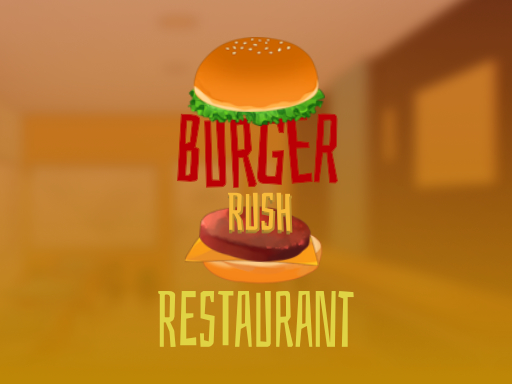Lost Ru
About Lost Ru
Okay, so listen, you know how sometimes you stumble across a game, maybe something in the hypercasual space that you just pick up on a whim, and it completely blindsides you? Like, you expect a quick five-minute distraction, and suddenly it's three hours later, your phone's about to die, and you're still completely lost in it? That's exactly what happened to me with this game, Lost Ru. Seriously, you have to hear about this.
I mean, I've always been drawn to games that drop you into a tough spot and make you figure things out. There's something magical about starting with absolutely nothing and slowly, painstakingly, building your way up, turning raw wilderness into a place you can survive, even thrive. And Lost Ru, it takes that core loop and just… *nails* it, but in a way that feels so fresh and immediate.
Imagine this: you're the pilot. Not some grizzled action hero, just… a pilot. And your plane, well, it's gone down. Mid-air, catastrophic failure, the whole terrifying nine yards. You wake up, dazed, surrounded by wreckage, not on some deserted beach, but in this absolutely wild, overgrown landscape. And the first thing that hits you isn't the pain, or the fear, it’s this overwhelming sense of responsibility. Your passengers, they're not with you. They're scattered, stranded on tiny, isolated islands, swallowed up by this endless, undulating sea of tall, wild grass.
That initial moment, that's where the game hooks you. You're not just surviving for yourself; you're surviving to save others. And honestly, that emotional pull, that drive to reunite your crew, it’s what elevates Lost Ru beyond just another crafting game. It gives every single action, every piece of salvaged metal, every crafted tool, a profound sense of purpose. You can almost feel the weight of that responsibility pressing down on you as you take those first tentative steps away from the smoking remains of your aircraft.
The brilliant thing about this is how it immediately throws you into the core loop without ever feeling overwhelming. You start with literally nothing but your wits. You see a piece of twisted metal from the plane, you pick it up. You find some sturdy branches, you grab those too. And right there, in your inventory, the game's intuitive crafting system just *clicks*. You need an axe? Combine a branch and some metal. Boom, you've got a basic tool. And that feeling of agency, of being able to immediately address a need with the resources around you, it's incredibly satisfying. It’s not about memorizing complex recipes; it’s about logical progression, about seeing a problem and instinctively knowing what you need to make to solve it.
What's fascinating is how the environment itself becomes your first major puzzle. This wild grass isn't just scenery; it's a character. It's tall, dense, almost alive. You can't see more than a few feet in front of you. It rustles with every step, creating this constant, low-level tension. Is that just the wind, or is something moving out there? The game does an incredible job of making you feel vulnerable, isolated. And when you finally manage to craft a machete, or some other tool to clear a path, the relief is palpable. You're not just clearing grass; you're carving out a sliver of control from the chaos.
Then you start to explore. And this is where the game really opens up. The "small islands" aren't just static locations; they're miniature ecosystems, each with its own set of resources, its own challenges, and most importantly, its own stranded passenger. Finding your first passenger, pushing through that dense foliage, hearing their faint cries for help, and then finally seeing them… man, that moment of connection, even in a hypercasual game, it’s powerful. It reinforces *why* you're doing all of this.
But getting to those islands, that's where the mining and the more complex puzzles come into play. You might need to build a makeshift raft, which means gathering specific types of wood, maybe even finding some natural tar to seal the seams. Or you might encounter a blocked path, a rockfall, that requires a pickaxe – which means finding tougher ore, perhaps even smelting it down if you can figure out how to build a basic forge. The game never explicitly tells you "go do X." It presents you with a barrier, and your own curiosity and problem-solving instincts kick in.
I remember one particular moment, I was trying to reach an island that seemed just a little too far for my flimsy raft. I’d explored everything nearby, mined all the obvious ore, but I couldn’t find the specific component I needed for a better boat. I was getting a little frustrated, honestly. I mean, I’m usually pretty good at these kinds of games, but this one had me stumped for a bit. Then, as I was just idly chopping some trees, I noticed a subtle discoloration in the ground beneath one of them. It wasn't obvious, not like a glittering vein of ore. It was just... different. I pulled out my pickaxe, started chipping away, and lo and behold, I unearthed a deposit of a completely new, incredibly durable rock. That "aha!" moment, that feeling of having earned the discovery through sheer persistence and observation, it's what makes the game so rewarding. It's not about grinding; it's about paying attention, about truly interacting with the world.
And the puzzles aren't just about crafting. Sometimes it's about navigating a maze of overgrown ruins, figuring out the right sequence to activate ancient mechanisms that might clear a path or reveal a hidden resource. Other times, it's about environmental storytelling – piecing together clues from the wreckage of the plane or strange markings in the wild grass that hint at the true nature of this mysterious realm. The game has this incredible way of weaving its lore into the gameplay, making every discovery feel like a step closer to understanding the bigger picture.
In my experience, the best moments come when you've just completed a major objective – rescued a passenger, crafted a significant upgrade, unlocked a new area – and you take a moment to look back at how far you've come. You started with nothing, and now you've got a small, bustling camp, a collection of tools, and a growing group of survivors. That sense of progression, that tangible evidence of your efforts, it’s incredibly motivating. It’s that "just one more thing" loop, you know? You rescue one passenger, and you immediately start thinking about the next. What resources will I need? What challenges await?
And then there's the looming threat. The "unknown dangers lurking in the wilderness." The game hints at them subtly at first – a strange sound in the distance, a shadow moving just beyond your line of sight in the tall grass, an unsettling symbol carved into a tree. It's never overtly jump-scare territory, but it builds this persistent, atmospheric tension. You're always on edge, always aware that this beautiful, wild land isn't entirely safe. It adds a layer of urgency to your mission. You're not just trying to escape; you're trying to escape *before* whatever is out there finds you.
What I love about games like this is how they simplify complex mechanics into something immediately understandable and enjoyable, without sacrificing depth. Lost Ru is a masterclass in that. It distills the essence of survival, crafting, and exploration into a hypercasual package that's incredibly addictive. You can almost feel the crunch of the wild grass under your feet, the satisfying *thwack* of your axe hitting wood, the quiet hum of your makeshift tools. It’s visceral.
The real magic happens when you realize you're not just playing a game; you're embodying this pilot, driven by a singular purpose. You're feeling their triumphs, their frustrations, their quiet determination. And when that strategy finally clicks into place, when you figure out how to bridge that last gap to the final island, or unlock the secret to escaping this enigmatic realm, the satisfaction is immense. You'll find yourself leaning forward in your chair, heart pounding, utterly absorbed.
Honestly, if you're looking for something that’s easy to pick up but incredibly hard to put down, something that offers genuine challenge and a deeply rewarding sense of progression, you absolutely have to give Lost Ru a try. It’s not just a game; it’s an adventure that will surprise you with its depth and emotional resonance. It’s the kind of discovery that makes you want to immediately tell all your friends about it. Trust me on this one.
I mean, I've always been drawn to games that drop you into a tough spot and make you figure things out. There's something magical about starting with absolutely nothing and slowly, painstakingly, building your way up, turning raw wilderness into a place you can survive, even thrive. And Lost Ru, it takes that core loop and just… *nails* it, but in a way that feels so fresh and immediate.
Imagine this: you're the pilot. Not some grizzled action hero, just… a pilot. And your plane, well, it's gone down. Mid-air, catastrophic failure, the whole terrifying nine yards. You wake up, dazed, surrounded by wreckage, not on some deserted beach, but in this absolutely wild, overgrown landscape. And the first thing that hits you isn't the pain, or the fear, it’s this overwhelming sense of responsibility. Your passengers, they're not with you. They're scattered, stranded on tiny, isolated islands, swallowed up by this endless, undulating sea of tall, wild grass.
That initial moment, that's where the game hooks you. You're not just surviving for yourself; you're surviving to save others. And honestly, that emotional pull, that drive to reunite your crew, it’s what elevates Lost Ru beyond just another crafting game. It gives every single action, every piece of salvaged metal, every crafted tool, a profound sense of purpose. You can almost feel the weight of that responsibility pressing down on you as you take those first tentative steps away from the smoking remains of your aircraft.
The brilliant thing about this is how it immediately throws you into the core loop without ever feeling overwhelming. You start with literally nothing but your wits. You see a piece of twisted metal from the plane, you pick it up. You find some sturdy branches, you grab those too. And right there, in your inventory, the game's intuitive crafting system just *clicks*. You need an axe? Combine a branch and some metal. Boom, you've got a basic tool. And that feeling of agency, of being able to immediately address a need with the resources around you, it's incredibly satisfying. It’s not about memorizing complex recipes; it’s about logical progression, about seeing a problem and instinctively knowing what you need to make to solve it.
What's fascinating is how the environment itself becomes your first major puzzle. This wild grass isn't just scenery; it's a character. It's tall, dense, almost alive. You can't see more than a few feet in front of you. It rustles with every step, creating this constant, low-level tension. Is that just the wind, or is something moving out there? The game does an incredible job of making you feel vulnerable, isolated. And when you finally manage to craft a machete, or some other tool to clear a path, the relief is palpable. You're not just clearing grass; you're carving out a sliver of control from the chaos.
Then you start to explore. And this is where the game really opens up. The "small islands" aren't just static locations; they're miniature ecosystems, each with its own set of resources, its own challenges, and most importantly, its own stranded passenger. Finding your first passenger, pushing through that dense foliage, hearing their faint cries for help, and then finally seeing them… man, that moment of connection, even in a hypercasual game, it’s powerful. It reinforces *why* you're doing all of this.
But getting to those islands, that's where the mining and the more complex puzzles come into play. You might need to build a makeshift raft, which means gathering specific types of wood, maybe even finding some natural tar to seal the seams. Or you might encounter a blocked path, a rockfall, that requires a pickaxe – which means finding tougher ore, perhaps even smelting it down if you can figure out how to build a basic forge. The game never explicitly tells you "go do X." It presents you with a barrier, and your own curiosity and problem-solving instincts kick in.
I remember one particular moment, I was trying to reach an island that seemed just a little too far for my flimsy raft. I’d explored everything nearby, mined all the obvious ore, but I couldn’t find the specific component I needed for a better boat. I was getting a little frustrated, honestly. I mean, I’m usually pretty good at these kinds of games, but this one had me stumped for a bit. Then, as I was just idly chopping some trees, I noticed a subtle discoloration in the ground beneath one of them. It wasn't obvious, not like a glittering vein of ore. It was just... different. I pulled out my pickaxe, started chipping away, and lo and behold, I unearthed a deposit of a completely new, incredibly durable rock. That "aha!" moment, that feeling of having earned the discovery through sheer persistence and observation, it's what makes the game so rewarding. It's not about grinding; it's about paying attention, about truly interacting with the world.
And the puzzles aren't just about crafting. Sometimes it's about navigating a maze of overgrown ruins, figuring out the right sequence to activate ancient mechanisms that might clear a path or reveal a hidden resource. Other times, it's about environmental storytelling – piecing together clues from the wreckage of the plane or strange markings in the wild grass that hint at the true nature of this mysterious realm. The game has this incredible way of weaving its lore into the gameplay, making every discovery feel like a step closer to understanding the bigger picture.
In my experience, the best moments come when you've just completed a major objective – rescued a passenger, crafted a significant upgrade, unlocked a new area – and you take a moment to look back at how far you've come. You started with nothing, and now you've got a small, bustling camp, a collection of tools, and a growing group of survivors. That sense of progression, that tangible evidence of your efforts, it’s incredibly motivating. It’s that "just one more thing" loop, you know? You rescue one passenger, and you immediately start thinking about the next. What resources will I need? What challenges await?
And then there's the looming threat. The "unknown dangers lurking in the wilderness." The game hints at them subtly at first – a strange sound in the distance, a shadow moving just beyond your line of sight in the tall grass, an unsettling symbol carved into a tree. It's never overtly jump-scare territory, but it builds this persistent, atmospheric tension. You're always on edge, always aware that this beautiful, wild land isn't entirely safe. It adds a layer of urgency to your mission. You're not just trying to escape; you're trying to escape *before* whatever is out there finds you.
What I love about games like this is how they simplify complex mechanics into something immediately understandable and enjoyable, without sacrificing depth. Lost Ru is a masterclass in that. It distills the essence of survival, crafting, and exploration into a hypercasual package that's incredibly addictive. You can almost feel the crunch of the wild grass under your feet, the satisfying *thwack* of your axe hitting wood, the quiet hum of your makeshift tools. It’s visceral.
The real magic happens when you realize you're not just playing a game; you're embodying this pilot, driven by a singular purpose. You're feeling their triumphs, their frustrations, their quiet determination. And when that strategy finally clicks into place, when you figure out how to bridge that last gap to the final island, or unlock the secret to escaping this enigmatic realm, the satisfaction is immense. You'll find yourself leaning forward in your chair, heart pounding, utterly absorbed.
Honestly, if you're looking for something that’s easy to pick up but incredibly hard to put down, something that offers genuine challenge and a deeply rewarding sense of progression, you absolutely have to give Lost Ru a try. It’s not just a game; it’s an adventure that will surprise you with its depth and emotional resonance. It’s the kind of discovery that makes you want to immediately tell all your friends about it. Trust me on this one.
Enjoy playing Lost Ru online for free on Qotori games. This Arcade game offers amazing gameplay and stunning graphics. No downloads required, play directly in your browser!
How to Play
Desktop Controls W uarr Up Arrow Move forward S darr Down Arrow Move backward A larr Left Arrow Move left D rarr Right Arrow Move right Mobile Controls On-Screen Joystick Move in all directions by dragging the joystick





Comments
This game is awesome! I love the graphics and gameplay.
One of the best games I've played recently. Highly recommended!